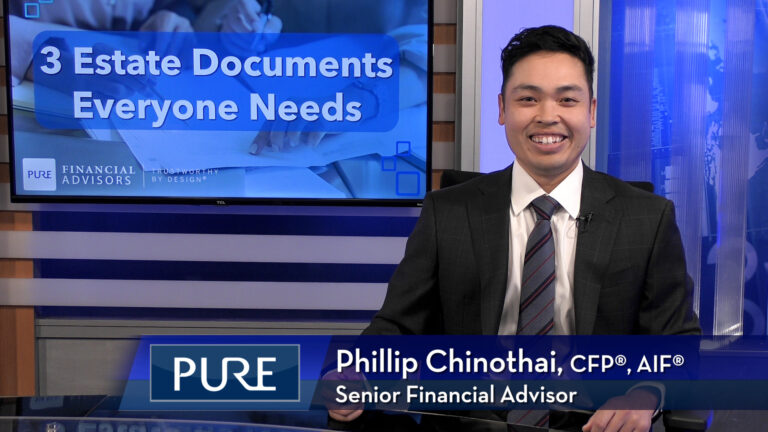Does your company provide a Flexible Spending Account (FSA) to help cover healthcare expenses? If so, our Financial Planner Joe Schweiger, CFP®, AIF®, guides you through the details of FSA’s to ensure it’s the right employee benefit for you.
FREE GUIDE | Retirement Readiness Guide
Transcript
Today’s financial tip is utilizing the balance in your healthcare flex spending account prior to year-end. First, let’s start with the basics – a Flex Spending Account, or FSA, is an employee benefit that allows you to set aside money from your paycheck to cover certain out-of-pocket health care costs. The dollars that go into this account are exempt from tax – this essentially leads to savings on medical expenses that’s equal to your effective tax rate.
There are limits for how much can be contributed to an FSA in a calendar year – for 2023, that limit is $3,050. Qualified medical and dental expenses include deductibles, copayments, prescriptions, medical equipment, supplies like bandages, and diagnostic devices like blood sugar test kits. A main provision with the FSA is that the funds that have been contributed must be used in the calendar year – essentially a use-it or lose-it feature. For this reason, it’s important to have an idea of what type of medical expenses you’ll have for the upcoming year prior to funding it. The plan may provide certain options such as provide a “grace period” of 2.5 months or allow a carryover of up to $610 for the following year if all funds haven’t been used. The plan isn’t required to offer this and can’t offer both. If you find yourself with funds still in your account and don’t have any further anticipated medical expenses, don’t worry, there is still some time to use these funds. First, go to www.FSAstore.com. To browse FSA approved products. Certain items like sunscreen, first aid supplies, over-the-counter medications, & eyewear are some common items people use often and can stock up on. Other options may include eye exams, contact lenses, dental treatment, or chiropractic treatment. You may want to also look back over the year to see if there were any other costs associated with medical treatments you had throughout the year that you may be able to be reimbursed on, such as lodging costs. There’s no one-size-fits-all approach when it comes to flexible spending accounts. To decide if an FSA is right for you, forecast upcoming health and dependent care expenses for the year, plus general drugstore-item spending, and become familiar with the FSA plans being offered. If you would like to explore if an FSA account would be right for you, take advantage of our free financial assessment.
Subscribe to our YouTube channel.
IMPORTANT DISCLOSURES:
• Investment Advisory and Financial Planning Services are offered through Pure Financial Advisors, LLC, a Registered Investment Advisor.
• Pure Financial Advisors LLC does not offer tax or legal advice. Consult with your tax advisor or attorney regarding specific situations.
• Opinions expressed are subject to change without notice and are not intended as investment advice or to predict future performance.
• Investing involves risk including the potential loss of principal. No investment strategy can guarantee a profit or protect against loss in periods of declining values.
• All information is believed to be from reliable sources; however, we make no representation as to its completeness or accuracy.
• Intended for educational purposes only and are not intended as individualized advice or a guarantee that you will achieve a desired result. Before implementing any strategies discussed you should consult your tax and financial advisors.
CFP® – The CERTIFIED FINANCIAL PLANNER™ certification is by the Certified Financial Planner Board of Standards, Inc. To attain the right to use the CFP® designation, an individual must satisfactorily fulfill education, experience and ethics requirements as well as pass a comprehensive exam. Thirty hours of continuing education is required every two years to maintain the designation.
AIF® – Accredited Investment Fiduciary designation is administered by the Center for Fiduciary Studies fi360. To receive the AIF Designation, an individual must meet prerequisite criteria, complete a training program, and pass a comprehensive examination. Six hours of continuing education is required annually to maintain the designation.














